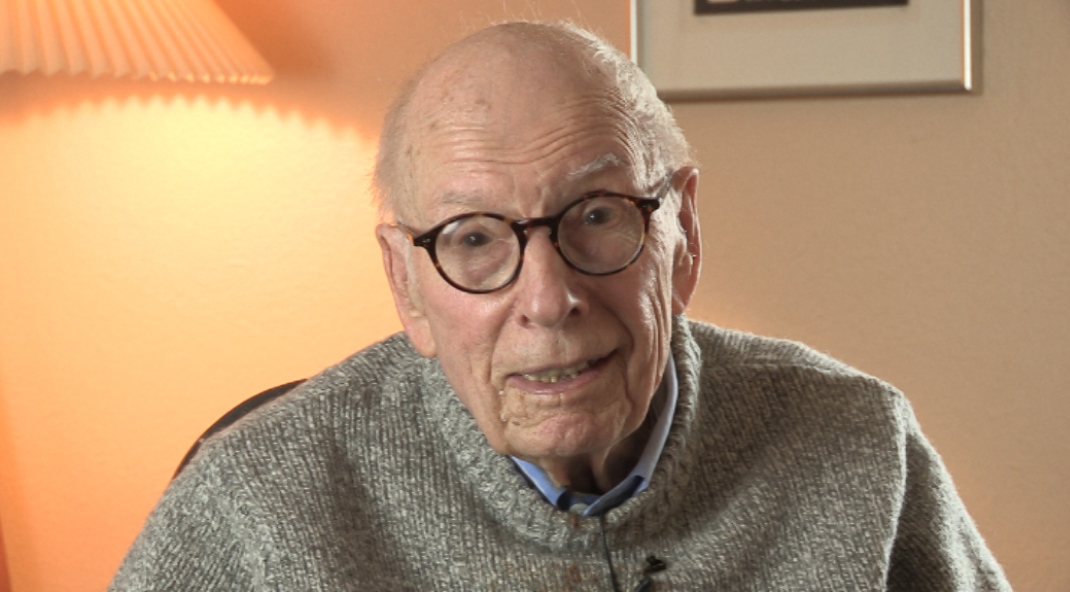NEXT STORY

A serendipitous discovery
RELATED STORIES

NEXT STORY

A serendipitous discovery
RELATED STORIES


|
Views | Duration | |
|---|---|---|---|
| 21. My inferiority complex | 175 | 01:28 | |
| 22. The inimitable William H Weston | 77 | 03:33 | |
| 23. A serendipitous discovery | 72 | 02:02 | |
| 24. Upstaged by slime molds | 70 | 02:30 | |
| 25. How slime molds grow | 65 | 03:08 | |
| 26. My eureka moment | 101 | 03:11 | |
| 27. Filming slime mold as it grows | 97 | 03:10 | |
| 28. What makes slime mold grow at right angles? | 57 | 03:29 | |
| 29. Ammonia is it! | 44 | 01:22 | |
| 30. Complemented on my thesis | 1 | 43 | 00:41 |


Because I'd taken a good biology course at school, I was allowed to go into the second year basic biology at Harvard, which was a botany course on lower organisms, cryptogrammic botany. And it was taught by a man names William H Weston, who I mentioned earlier. And he was just the most wonderful teacher I've ever encountered and he was a charming, sympathetic man. He just somehow rather took my intellectual heart; I took to him instantly. His lectures were just marvels and all extemporaneous, too. And he would… I remember the first lecture I went to with him. It was the first year that Radcliffe girls and Harvard boys could be in the same class. And I remember this so vividly because he was tall like you, but he was quite deaf and he had a box in his upper pocket. And so a girl in the back asked a question and he said, 'Wait a moment', and he unhooked his box and he took it in his hand. He went tearing down the aisle, and set the box in front of her on her desk where she was writing, and said, 'Would you repeat that question, my dear?' Of course, which captivated not only 'my dear' but everybody else in the room. And then, his answer was just so perfect. It was not condescending. It was not unsympathetic. It was just right.
[Q] So he was a big influence?
Very big influence, and what he's famous for was having lots of students who were working on algae, fungi, lower things, and since I started off working on algae, he gave me a bench space in a big, general lab with graduate students, which was great.
John Tyler Bonner (born in 1920) is an emeritus professor in the Department of Ecology and Evolutionary Biology at Princeton University. He is a pioneer in the use of cellular slime molds to understand evolution and development and is one of the world's leading experts on cellular slime molds. He says that his prime interests are in evolution and development and that he uses the cellular slime molds as a tool to seek an understanding of those twin disciplines. He has written several books on developmental biology and evolution, many scientific papers, and has produced a number of works in biology. He has led the way in making Dictyostelium discoideum a model organism central to examining some of the major questions in experimental biology.
Title: The inimitable William H Weston
Listeners: Christopher Sykes
Christopher Sykes is an independent documentary producer who has made a number of films about science and scientists for BBC TV, Channel Four, and PBS.
Tags: botany, teacher, deafness, students
Duration: 3 minutes, 33 seconds
Date story recorded: February 2016
Date story went live: 14 September 2016